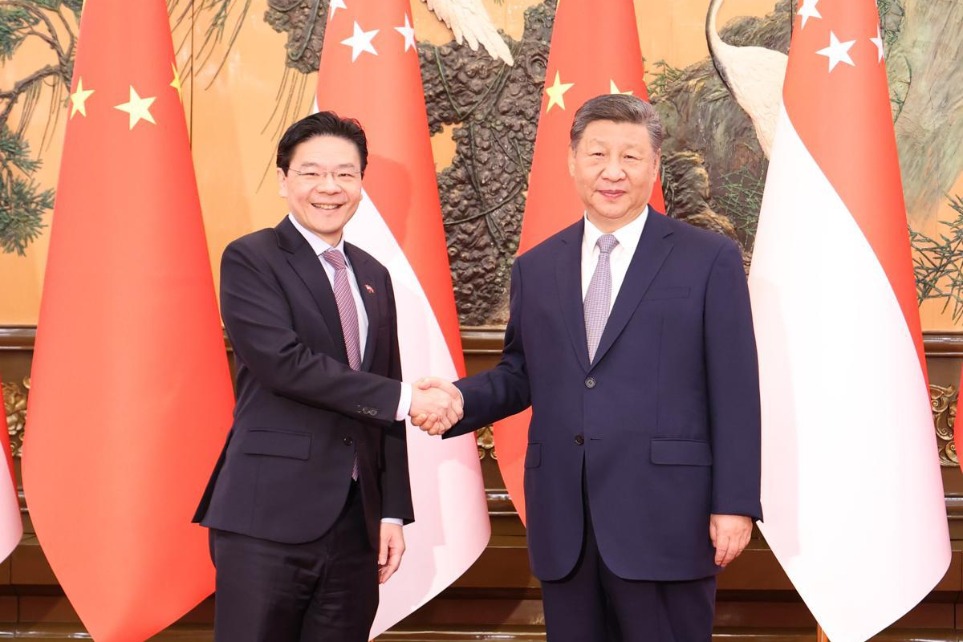Functional change


Partnerships within the Global South can enable a multilateral trading system that fosters inclusive and sustainable development
Global cooperation and sustainable development hinge on strong multilateralism and stable, inclusive trade environments. The multilateral trading system — anchored by the World Trade Organization — has long provided the foundational framework for regulating global trade relations. This system plays a vital role in promoting an open, transparent, inclusive, non-discriminatory, fair, predictable and stable trading environment. For developing economies, preserving and strengthening this system is essential. By ensuring a rules-based international trading order, these economies can gain more secure and equitable access to global markets, thereby unlocking new opportunities for growth and development.
However, this system is under threat. Since 2019, the WTO's dispute settlement mechanism has been effectively paralyzed following the US decision to block appointments to the WTO Appellate Body. This institutional crisis has far-reaching consequences. For developing countries — particularly in Africa and across the Global South — the absence of a functioning dispute settlement system undermines trust in the fairness of global trade and erodes the legal protections that these countries rely on to challenge unjust trade practices. Therefore, restoring a fully operational and impartial dispute settlement mechanism must be a priority.
The paralysis of the WTO's dispute settlement mechanism has far-reaching implications — particularly for developing economies that rely on a rules-based trading system to protect their interests in the global market. One major consequence is the increased vulnerability to power asymmetries. In the absence of a credible enforcement mechanism, global trade risks shifting further toward bilateral or plurilateral agreements, where larger economies often set the terms. For many African countries and other economies in the Global South that may lack the legal infrastructure or negotiating leverage of wealthier nations, this shift exposes them to greater risks of unilateral trade measures and discriminatory practices. Without a functioning system to challenge such actions, smaller economies are left with limited recourse to defend their trade rights.
As major developed economies increasingly pursue new trade norms outside the multilateral framework, developing countries risk being excluded from shaping the rules that will govern the future of trade. Emerging initiatives — such as digital trade agreements and environmental trade standards — are often negotiated in exclusive platforms such as the G7, or within bilateral and plurilateral trade agreements. These settings frequently lack meaningful representation from the Global South. As a result, the standards that emerge may not reflect the developmental realities, technological capacities or regulatory priorities of developing countries, thereby entrenching existing inequalities in the global trading system. This heightens the urgency for Africa to strengthen its role in South-South cooperation.
A compelling example of how strategic partnerships within the Global South can foster mutual development and support a more equitable global trading system is the growing economic cooperation between China and Nigeria. This relationship illustrates how developing countries can leverage South-South partnerships to reduce dependence on Western-dominated trade frameworks, enhance sovereignty in trade policy, and strengthen their integration into the rules-based global economy. China has become a key trade and investment partner for Nigeria across sectors such as infrastructure, manufacturing and telecommunications. These engagements have contributed to job creation, technology transfer and infrastructure development — core pillars of Nigeria's pursuit of the Sustainable Development Goals set by the United Nations. However, Nigeria's ability to fully capitalize on such partnerships is constrained by its limited influence in the multilateral trading system. Without a robust, rules-based international trade framework, Nigeria risks facing barriers that could erode the benefits of international cooperation. As a developing country that heavily relies on trade to fuel its economic growth and sustainable development, Nigeria is particularly vulnerable to the uncertainties and power imbalances in the current global trade landscape.
As Nigeria navigates a complex and evolving trade environment, its trade partnership with China has been fruitful and offers both opportunities and lessons in harnessing international trade for sustainable development. In a major policy shift poised to reshape Africa-China trade relations, the Chinese government has announced plans to grant Nigeria and 52 other African countries full duty-free access to its vast consumer market. This groundbreaking move is emblematic of China's commitment to safeguarding the multilateral trade system, and advancing a more equitable, multipolar global order in which all nations, regardless of their size or economic power, can participate and benefit.
For a country such as Nigeria, which relies heavily on trade to fuel economic growth, create jobs and advance its Sustainable Development Goals, this policy could be a game-changer. It aligns with Nigeria's strategic interest in diversifying trade partnerships, reducing overdependence on traditional Western markets and embedding itself more firmly within global value chains. However, maximizing the benefits of this opportunity will require more than preferential access. Nigeria must invest in trade infrastructure, standards compliance and export capacity — especially in high-potential sectors such as agribusiness, light manufacturing and solid minerals. Additionally, effective trade diplomacy and institutional coordination will be crucial to ensure that Nigerian exporters can navigate the Chinese market successfully and sustainably. This development also underscores the urgent need for a functional and inclusive multilateral trading system. China's zero-tariff initiative illustrates what strategic, mutually beneficial trade can look like — but it can also serve as a catalyst for reforming the WTO and reinforcing the principle that trade must work for all.
Such commitments provide much-needed reassurance for African economies such as Nigeria, which are navigating a volatile international environment. In a world facing compounding challenges — from geopolitical tensions to climate-related trade risks, the principles of transparency, openness and mutual benefit must remain central. China's engagement offers an example of how these principles can be operationalized through both bilateral cooperation and support for multilateral institutions. Ultimately, the shared China-Africa vision reinforces the importance of safeguarding and revitalizing the multilateral trading system. It is only through a fair, rules-based and inclusive global trade framework that developing countries can fully realize the benefits of international trade and chart a path toward inclusive and sustainable development.
The author is an associate professor and executive director of the Center for Nigerian Studies under the Institute of African Studies at Zhejiang Normal University. The author contributed this article to China Watch, a think tank powered by China Daily.
Contact the editor at editor@chinawatch.cn.
































